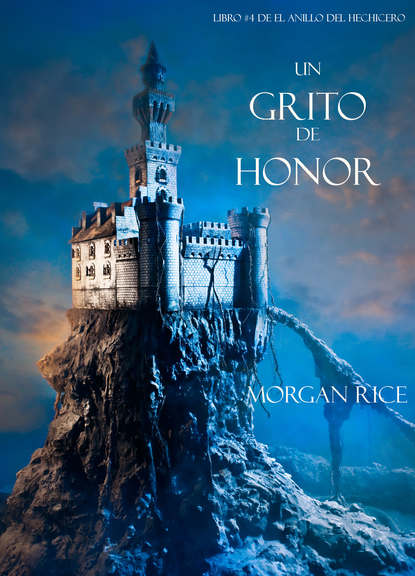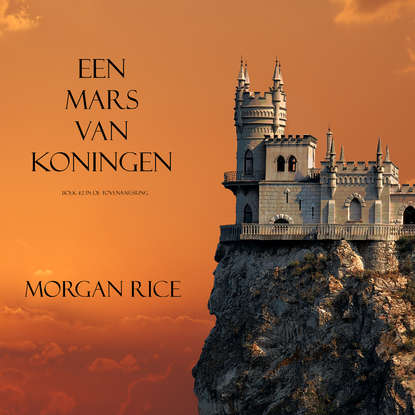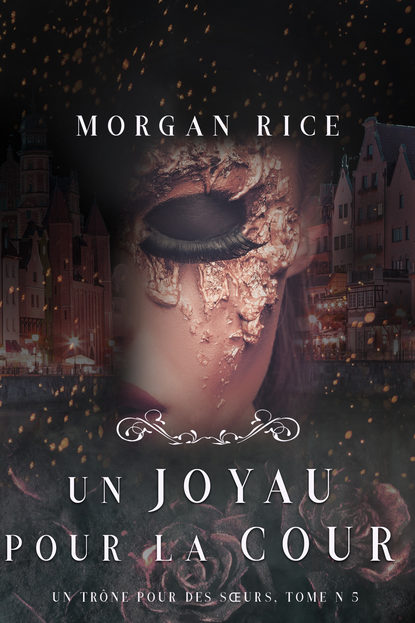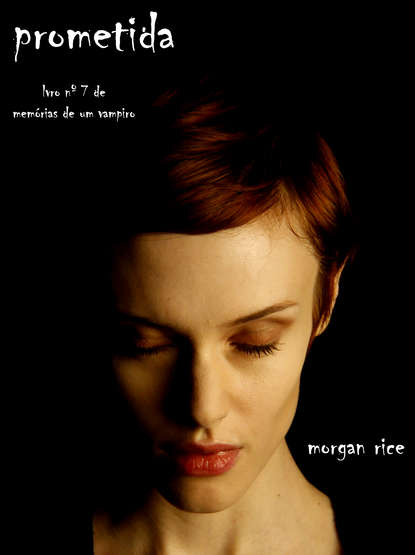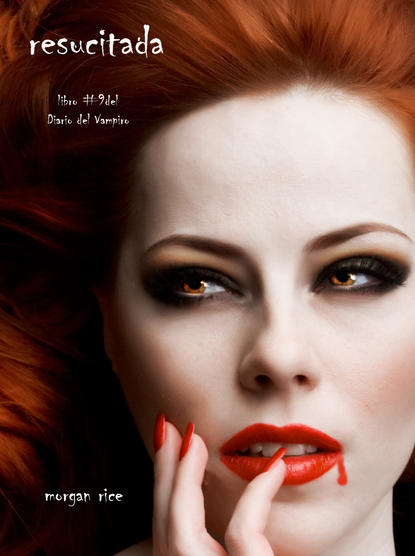 Полная версия
Полная версияПолная версия:
Морган Райс Arena One: Slaverunners
- + Увеличить шрифт
- - Уменьшить шрифт

Morgan Rice
Arena One: Slaverunners
“Had I but died an hour before this chance,I had lived a blessed time; for, from this instant,There’s nothing serious in mortality.”Shakespeare, MacbethCopyright © 2012 by Morgan Rice
All rights reserved. Except as permitted under the U.S. Copyright Act of 1976, no part of this publication may be reproduced, distributed or transmitted in any form or by any means, or stored in a database or retrieval system, without the prior permission of the author.
This ebook is licensed for your personal enjoyment only. This ebook may not be re-sold or given away to other people. If you would like to share this book with another person, please purchase an additional copy for each recipient. If you’re reading this book and did not purchase it, or it was not purchased for your use only, then please return it and purchase your own copy. Thank you for respecting the hard work of this author.
This is a work of fiction. Names, characters, businesses, organizations, places, events, and incidents either are the product of the author’s imagination or are used fictionally. Any resemblance to actual persons, living or dead, is entirely coincidental.
About Morgan Rice
Morgan Rice is the #1 bestselling and USA Today bestselling author of the epic fantasy series THE SORCERER’S RING, comprising seventeen books; of the #1 bestselling series THE VAMPIRE JOURNALS, comprising twelve books; of the #1 bestselling series THE SURVIVAL TRILOGY, a post-apocalyptic thriller comprising two books (and counting); of the epic fantasy series KINGS AND SORCERERS, comprising six books. Morgan’s books are available in audio and print editions, and translations are available in over 25 languages.
Morgan’s new epic fantasy series, OF CROWNS AND GLORY, will publish in April, 2016, beginning with book #1, SLAVE, WARRIOR, QUEEN.
TURNED (Book #1 in the Vampire Journals), ARENA ONE (Book #1 of the Survival Trilogy) and A QUEST OF HEROES (Book #1 in the Sorcerer’s Ring) and RISE OF THE DRAGONS (Kings and Sorcerers – Book #1) are each available as a free download!
Morgan loves to hear from you, so please feel free to visit www.morganricebooks.com to join the email list, receive a free book, receive free giveaways, download the free app, get the latest exclusive news, connect on Facebook and Twitter, and stay in touch!
Select Acclaim for Morgan Rice
“Shades of THE HUNGER GAMES permeate a story centered around two courageous teens determined to buck all odds in an effort to regain their loved ones. But the true strength in any story lies not so much in its setting and events as in how the characters come across, come alive, and handle their lives – and it's here that ARENA ONE begins to diverge from the predictable and enters the more compelling realms of believability and strength… ARENA ONE builds a believable, involving world and is recommended… for those who enjoy dystopian novels, powerful female characters, and stories of uncommon courage.”
Midwest Book ReviewD. Donovan, eBook Reviewer"I will admit, before ARENA ONE, I had never read anything post-apocalyptic before. I never thought it would be something I would enjoy… Well, I was very pleasantly surprised at how addicting this book was. ARENA ONE was one of those books that you read late into the night until your eyes start to cross because you don't want to put it down… It is no secret that I love strong heroines in the books I read… Brooke was tough, strong, un-relentless, and while there is romance in the book, Brooke wasn't ruled by that… I would highly recommend ARENA ONE.”
Dallas ExaminerBooks by Morgan Rice
OF CROWNS AND GLORYSLAVE, WARRIOR, QUEEN (Book #1)
KINGS AND SORCERERSRISE OF THE DRAGONS (Book #1)
RISE OF THE VALIANT (Book #2)
THE WEIGHT OF HONOR (Book #3)
A FORGE OF VALOR (Book #4)
A REALM OF SHADOWS (Book #5)
NIGHT OF THE BOLD (Book #6)
THE SORCERER’S RINGA QUEST OF HEROES (Book #1)
A MARCH OF KINGS (Book #2)
A FATE OF DRAGONS (Book #3)
A CRY OF HONOR (Book #4)
A VOW OF GLORY (Book #5)
A CHARGE OF VALOR (Book #6)
A RITE OF SWORDS (Book #7)
A GRANT OF ARMS (Book #8)
A SKY OF SPELLS (Book #9)
A SEA OF SHIELDS (Book #10)
A REIGN OF STEEL (Book #11)
A LAND OF FIRE (Book #12)
A RULE OF QUEENS (Book #13)
AN OATH OF BROTHERS (Book #14)
A DREAM OF MORTALS (Book #15)
A JOUST OF KNIGHTS (Book #16)
THE GIFT OF BATTLE (Book #17)
THE SURVIVAL TRILOGYARENA ONE: SLAVERSUNNERS (Book #1)
ARENA TWO (Book #2)
THE VAMPIRE JOURNALSTURNED (Book #1)
LOVED (Book #2)
BETRAYED (Book #3)
DESTINED (Book #4)
DESIRED (Book #5)
BETROTHED (Book #6)
VOWED (Book #7)
FOUND (Book #8)
RESURRECTED (Book #9)
CRAVED (Book #10)
FATED (Book #11)
OBSESSED (Book #12)

* * *

Part I
One
Today is less forgiving than most. The wind whips relentlessly, brushing clumps of snow off the heavy pine and right into my face as I hike straight up the mountain face. My feet, crammed into hiking boots a size too small, disappear in the six inches of snow. I slip and slide, struggling to find my footing. The wind comes in gusts, so cold it takes my breath away. I feel as if I’m walking into a living snow globe.
Bree tells me it’s December. She likes to count down the days to Christmas, scratching off the numbers each day on an old calendar she found. She does it with such enthusiasm, I can’t bring myself to tell her we’re nowhere near December. I won’t tell her that her calendar is three years old, or that we’ll never get a new one, because they stopped making them the day the world ended. I won’t deny her her fantasy. That’s what big sisters are for.
Bree clings to her beliefs anyway, and she’s always believed that snow means December, and even if I told her, I doubt it would change her mind. That’s a ten-year-old for you.
What Bree refuses to see is that winter comes early up here. We’re high up in the Catskills, and here, there’s a different sense of time, a different turn to the seasons. Here, three hours north of what was once New York City, the leaves drop by the end of August, scattering across mountain ranges that stretch as far as the eye can see.
Our calendar was current once. When we first arrived, three years ago, I remember seeing the first snow and then checking it in disbelief. I couldn’t understand how the page read October. I assumed such early snow was a freak. But I soon learned it wasn’t. These mountains are just high enough, just cold enough, for winter to cannibalize fall.
If Bree would just flip back the calendar, she’d see it right there, the old year, in big, tacky letters: 2117. Obviously, three years old. I tell myself she’s just too caught up in her excitement to check closely. This is what I hope. But lately, a part of me is beginning to suspect that she really knows, that she’s just chosen to lose herself in fantasy. I can’t blame her.
Of course, we haven’t had a working calendar for years. Or cell phone, or computer, or TV, or radio, or internet, or technology of any kind – not to mention electricity, or running water. Yet somehow, we’ve managed to make it, just the two of us, for three years like this. The summers have been tolerable, with fewer hungry days. We can at least fish then, and the mountain creeks always seemed to carry salmon. There are also berries, and even a few wild apple and pear orchards that still, after all this time, bear fruit. Once in a while, we even manage to catch a rabbit.
But the winters are intolerable. Everything is frozen, or dead, and each year I am certain we will not make it. And this has been the worst winter of all. I keep telling myself things will turn around; but it’s been days now without a decent meal, and winter has just begun. We are both weak from hunger, and now Bree is also sick. It doesn’t bode well.
As I trudge up the mountain face, retracing the same luckless steps I took yesterday, searching for our next meal, I am beginning to feel our luck has run out. It is only the thought of Bree lying there, waiting at home, that urges me forward. I stop pitying myself and instead hold her face in my mind. I know I can’t find medicine, but I am hoping it’s just a passing fever, and that a good meal and some warmth are all she needs.
What she really needs is a fire. But I never light fires in our fireplace anymore; I can’t risk the smoke, the smell, tipping off a slaverunner to our location. But tonight I will surprise her, and just for a little while, take the chance. Bree lives for fires, and it will lift her spirits. And if I can just find a meal to complement it – even something as small as a rabbit – it will complete her recovery. Not just physically. I’ve noticed her starting to lose hope these last few days – I can see it in her eyes – and I need her to stay strong. I refuse to sit back and watch her slip away, like Mom did.
A new gust of wind slaps me in the face, and this one is so long and vicious I need to lower my head and wait until it passes. The wind roars in my ears, and I would do anything for a real winter coat. I wear only a worn hoodie, one I found years ago by the side of the road. I think it was a boy’s, but that’s good, because the sleeves are long enough to cover my hands and almost double as gloves. At five-six I’m not exactly short, so whoever owned this must have been tall. Sometimes I wonder if he’d care that I’m wearing his clothing. But then I realize he’s probably dead. Just like everybody else.
My pants aren’t much better: I still wear the same pair of jeans, I’m embarrassed to note, that I’ve had on since we escaped the city all those years ago. If there’s one thing I regret, it’s leaving so hastily. I guess I’d assumed I’d find some clothes up here, that maybe a clothing store would still be open somewhere, or even a Salvation Army. That was stupid of me: of course, all the clothing stores had long ago been looted. It was as if, overnight, the world went from a place of plenty to a place of scarcity. I’d managed to find a few pieces of clothing scattered in drawers in my Dad’s house. These I gave to Bree. I was happy that at least some of his clothes, like his thermals and socks, could keep her warm.
The wind finally stops, and I raise my head and hurry straight up before it can pick up again, forcing myself at double speed, until I reach the plateau.
I reach the top, breathing hard, my legs on fire, and slowly look around. The trees are more sparse up here and in the distance is a small mountain lake. It’s frozen, like all the others, and the sun glares off of it with enough intensity to make me squint.
I immediately look over at my fishing rod, the one I’d left the day before, wedged between two boulders. It sticks out over the lake, a long piece of string dangling from it into a small hole in the ice. If the rod is bent, it means Bree and I will have dinner tonight. If not, I’ll know it didn’t work – again. I hurry between a cluster of trees, through the snow, and get a good look.
It’s straight. Of course.
My heart sinks. I debate walking out onto the ice, using my small axe to chop a hole elsewhere. But I already know it won’t make a difference. The problem is not its position – the problem is this lake. The ground is too frozen for me to dig up worms, and I don’t even know where to look for them. I’m not a natural hunter, or trapper. If I’d known I’d end up here, I would have devoted my entire childhood to Outward Bound, to survival techniques. But now I find myself useless in most everything. I don’t know how to set traps, and my fishing lines rarely catch a thing.
Being my father’s daughter, a Marine’s daughter, the one thing I am good at – knowing how to fight – is useless up here. If I am helpless against the animal kingdom, at least I can handle myself against the two-legged ones. From the time I was young, like it or not, Dad insisted I be his daughter – a Marine’s daughter, and proud of it. He also wanted me to be the son he never had. He enrolled me in boxing, wrestling, mixed martial arts…there were endless lessons on how to use a knife, how to fire a gun, how to find pressure points, how to fight dirty. Most of all, he insisted I be tough, that I never show fear, and that I never cry.
Ironically, I have never had a chance to use a single thing he taught me, and it all couldn’t be more useless up here; there is not another person in sight. What I really need to know is how to find food – not how to kick someone. And if I do ever run into another person, I’m not going to be flipping him, but asking for help.
I think hard and recall that there is another lake up here somewhere, a smaller one; I saw it once, one summer when I was adventurous and hiked farther up the mountain. It’s a steep quarter-mile, and I haven’t tried to go up there since.
I look up and sigh. The sun is already going down, a morose winter sunset cast in a reddish hue, and I’m already weak, tired, and frozen. It will take most of what I’ve got just to make it back down the mountain. The last thing I want is to hike farther up. But a small voice inside me urges me to keep climbing. The more time I spend alone these days, the stronger Dad’s voice is becoming in my head. I resent it and want to block it out, but somehow, I can’t.
Stop whining and keep pushing, Moore!
Dad always liked to call me by my last name. Moore. It annoyed me, but he didn’t care.
If I go back now, Bree will have nothing to eat tonight. That lake up there is the best I can come up with, our only other source of food. I also want Bree to have a fire, and all the wood down here is soaked. Up there, where the wind is stronger, I might find wood dry enough for kindling. I take one more look straight up the mountain, and decide to go for it. I lower my head and begin the hike, taking my rod with me.
Each step is painful, a million sharp needles pulsing in my thighs, icy air piercing my lungs. The wind picks up and the snow whips, like sandpaper on my face. A bird caws way up high, as if mocking me. Just when I feel I can’t take one more step, I reach the next plateau.
This one, so high up, is different than all the others: it is densely packed with pine trees, making it difficult to see more than ten feet. The sky is shut out under their huge canopy, and the snow is covered with green needles. The huge tree trunks manage to shut out the wind, too. I feel like I’ve entered a small private kingdom, hidden from the rest of the world.
I stop and turn, taking in the vista: the view is amazing. I’d always thought we had a great view from Dad’s house, halfway up the mountain, but from here, up top, it is spectacular. Mountain peaks soar in every direction, and beyond them, in the distance, I can even see the Hudson River, sparkling. I also see the winding roads that cut their way through the mountain, remarkably intact. Probably because so few people ever come up here. I’ve never, in fact, seen a car, or any other vehicle. Despite the snow, the roads are clear; the steep, angular roads, basking in the sun, lend themselves perfectly to drainage, and amazingly, much of the snow has melted off.
I am struck by a pang of worry. I prefer when the roads are covered in snow and ice, when they are impassable to vehicles, because the only people who have cars and fuel these days are slaverunners – merciless bounty hunters that work to feed Arena One. They patrol everywhere, looking for any survivors, to kidnap them and bring them to the arena as slaves. There, I’m told, they make them fight to the death for entertainment.
Bree and I have been lucky. We haven’t seen any slaverunners in the years we’ve been up here – but I think that’s only because we live so high up, in such a remote area. Only once did I hear the high-pitched whine of a slaverunner’s engine, far off in the distance, on the other side of the river. I know they are down there, somewhere, patrolling. And I don’t take any chances – I make sure we keep a low profile, rarely burning wood unless we need to, and keeping a close eye on Bree at all times. Most of the times I take her hunting with me – I would have today if she weren’t so sick.
I turn back to the plateau and fix my eyes on the smaller lake. Frozen solid, shining in the afternoon light, it sits there like a lost jewel, hiding behind a copse of trees. I approach it, taking a few tentative steps on the ice to make sure it doesn’t crack. Once I feel it’s solid, I take a few more. I find a spot, remove the small axe from my belt and chop down hard, several times. A crack appears. I remove my knife, take a knee and strike hard, right in the center of the crack. I work the tip of the knife in there and carve a small hole, just big enough to extract a fish.
I hurry back to shore, slipping and sliding, then wedge the fishing rod between two tree branches, unravel the string, and run back out and drop it in the hole. I yank it a few times, hoping that the flash of the metal hook might attract some living creatures beneath the ice. But I can’t help feeling it’s a futile endeavor, can’t help suspecting that anything that ever lived in these mountain lakes died long ago.
It’s even colder up here, and I can’t just stand here, staring at the line. I have to keep moving. I turn and walk away from the lake, the superstitious part of me telling me I might just catch a fish if I don’t stand there staring. I walk in small circles around the trees, rubbing my hands, trying to keep warm. It does little good.
That’s when I remember the dry wood. I look down and search for kindling, but it is a futile task. The ground is covered in snow. I look up at the trees, and see the trunks and branches are mostly covered in snow, too. But there, in the distance, I spot a few wind-swept trees free of snow. I make my way over to them and inspect the bark, running my hand along it. I am relieved to see that some of the branches are dry. I take out my axe and chop one of the bigger branches. All I need is an armful of wood, and this large branch will do perfectly.
I catch it as it comes down, not wanting to let it hit the snow, then brace it against the trunk and chop it again, clean in half. I do this again and again, until I have a small stack of kindling, enough to carry in my arms. I set it down in the nook of a branch, safe and dry from the snow below.
I look around, inspecting the other trunks, and as I look closer, something gives me pause. I approach one of the trees, looking closely, and realize its bark is different than the others. I look up, and realize it’s not a pine; it’s a maple. I am surprised to see a maple so high up here, and even more surprised that I actually recognize it. In fact, a maple is probably the only thing in nature I would recognize. Despite myself, a memory comes flooding back.
Once, when I was young, my Dad got it into his head to take me on a nature outing. God knows why, but he took me to tap maple trees. We drove for hours to some godforsaken part of the country, me carrying a metal bucket, him carrying a spout, and then spent hours more roaming the woods with a guide, searching for the perfect maples. I remember the look of disappointment on his face after he tapped his first tree and a clear liquid oozed out into our bucket. He had been expecting syrup.
Our guide laughed at him, told him that maple trees didn’t produce syrup – they produced sap. The sap had to be boiled down to syrup. It was a process that took hours, he said. It took about 80 gallons of sap to make a single quart of syrup.
Dad looked down at the overflowing bucket of sap in his hand and turned bright red, as if someone had sold him a rotten bill of goods. He was the proudest man I’d ever met, and if there was anything he hated more than feeling stupid, it was someone making fun of him. When the man laughed, he threw his bucket at him, barely missing him, took my hand, and we stormed off.
After that, he never took me out into nature again.
I didn’t mind, though – and actually enjoyed the outing, even though he fumed silently in the car the whole way home. I’d managed to collect a small cup of the sap before he’d taken me away, and I remember secretly sipping it on the car ride home, when he wasn’t looking. I loved it. It tasted like sugar water.
Standing here now, before this tree, I recognize it as I would a sibling. This specimen, so high up, is thin and scrawny, and I’d be surprised if it holds any sap at all. But I’ve got nothing to lose. I take out my knife and strike the tree, again and again, in the same spot. Then I burrow the knife into the hole, pushing deeper and deeper, twisting and turning. I don’t really expect anything to happen.
I’m shocked when a drop of sap leaks out. And even more shocked when, moments later it turns into a small, trickling stream. I hold out my finger, touch it, and raise it to my tongue. I feel the sugar rush, and recognize the taste immediately. Just as I remembered. I can’t believe it.
The sap leaks out at faster now, and I’m losing much of it as it drips down the trunk. I look around desperately for something to hold it in, a bucket of some kind – but of course there is none. And then I remember: my thermos. I pull my plastic thermos out of my waistband and turn it upside down, emptying it of water. I can get fresh water anywhere, especially with all this snow – but this sap is precious. I hold the empty thermos flush against the tree, wishing I had a proper spout. I cram the plastic against the trunk as close as I can, and manage to catch much of it. It fills more slowly than I’d like, but within minutes, I’ve managed to fill half the thermos.
The flow of sap stops. I wait for a few seconds, wondering if it will start again, but it doesn’t.
I look around and spot another maple, about ten feet in the distance. I rush over to it, raise my knife excitedly and strike hard this time, envisioning myself filling the thermos, envisioning the look of surprise on Bree’s face when she tastes it. It might not be nutritious, but it will sure make her happy.
But this time, when my knife strikes the trunk, there is a sharp splitting noise that I don’t expect, and this is followed by the groaning of timber. I look up to see the entire tree leaning, and I realize, too late, that this tree, frozen over in a coat of ice, was dead. The plunging of my knife was all it needed to tip it over the edge.
A moment later the entire tree, at least twenty feet, falls over, crashing down to the ground. It stirs up an enormous cloud of snow and pine needles. I crouch down, nervous I might have alerted someone to my presence. I am furious with myself. That was careless. Stupid. I should have examined the tree more carefully first.
But after a few moments my heartbeat settles, as I realize there’s no one else up here. I become rational again, realize that trees fall by themselves in the forest all the time, and its crash wouldn’t necessarily give away a human presence. And as I look to the place where the tree once stood, I do a double-take. I find myself staring in disbelief.
There, in the distance, hiding behind a grove of trees, built right into the side of the mountain itself, is a small, stone cottage. It is a tiny structure, a perfect square, about fifteen feet wide and deep, built about twelve feet high, with walls made of ancient stone blocks. A small chimney rises from the roof, and small windows are set into the walls. The wooden front door, shaped in an arch, is ajar.
This little cottage is so well camouflaged, blends so perfectly with its surroundings, that even while staring at it, I can barely pick it out. Its roof and walls are covered in snow, and the exposed stone blends perfectly into the landscape. The cottage looks ancient, as if it were built hundreds of years ago. I can’t understand what it’s doing here, who would have built it, or why. Maybe it was built for a caretaker for a state park. Maybe it was home to a recluse. Or a survival nut.
